Ductless Mini-Split Lifespan: How Long Should My Unit Last?
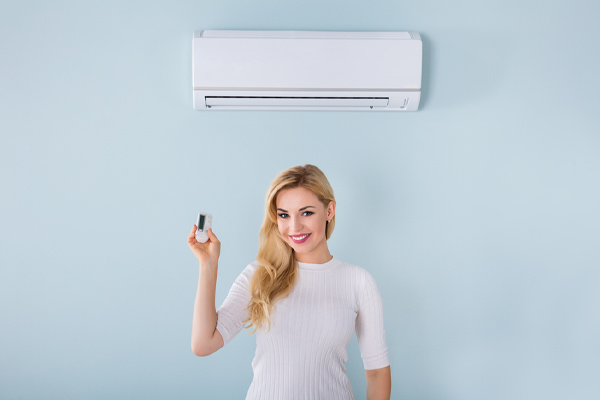
Anyone would agree that they want a good return of investment when they pay a high price. This is especially true for HVAC systems. Since a heating and air conditioning system costs thousands of dollars, it is a substantial investment for the average homeowner. Therefore, many homeowners want their HVAC system to last for a very long time. Typically, their search often leads to ductless mini-split systems.
In this article, we talk about ductless mini split lifespan. We’ll also go over the factors that can affect a ductless system’s longevity and compare a ductless system with a central HVAC unit.
Ductless Mini-Split Lifespan: How Long Should My Unit Last?
Contents
Most traditional air conditioners last for about ten years or so. Although a decade sounds very long, ductless mini-split air conditioners last even longer.
These systems have a lifespan of 20 years and more, especially if it’s taken care properly. Very few appliances have this long of a lifespan, which is proof that ductless mini-split systems are indeed worth the money you spend.
Unfortunately, this 20-year lifespan is not guaranteed. Without proper care and maintenance, it’s unlikely that an HVAC unit can operate for that long.
If you want your system to have a long service life, you need to be aware of some factors that may affect its longevity. Also, you need to take some proactive steps that will help prolong your ductless system’s lifespan.
Factors That Affect Ductless HVAC Longevity
1. Level Of Care Your Ductless Mini-Split Receives
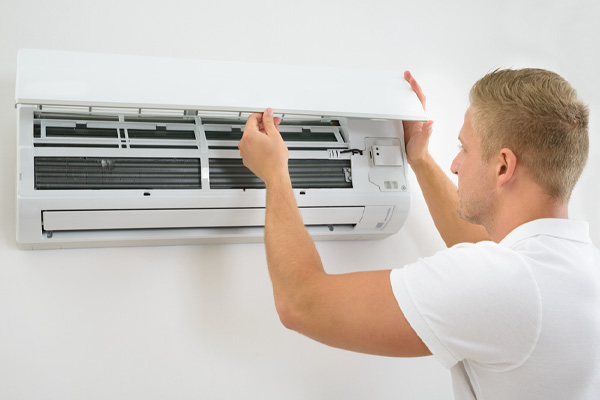
Like many home appliances, HVAC systems need to be taken care of to perform their best for an extended period.
Of course, this doesn’t mean that you should always fuss about them. Instead, performing simple tasks, like checking the air filters on a monthly basis, makes a world of difference. You also need to clean or replace the filter when it is dirty so that there’s always good airflow.
Another thing you should do is schedule professional maintenance at least twice a year. This way, certified HVAC technicians can come to your home to open the unit, inspect its components, clean the necessary parts, and perform tests to ensure that the whole system is working well.
Technicians can also make some needed adjustments to ensure that your ductless system remains energy-efficient and problem-free.
2. Frequency Of Use
When you use a heating and cooling system frequently, it’s only natural for the components to wear out. After all, most homeowners depend on their HVAC systems throughout the year, especially if they live in areas with extreme temperatures.
If you live in an area with hot summers and cold winters, it’s best to help your unit by reducing the system load. For example, you can use milder thermostat settings. At best, it would be helpful to maintain indoor temperatures at 71 to 78 degrees Fahrenheit, which is enough to keep all family members comfortable.
Whenever you’re away, it’s recommended to turn the temperature down when your ductless mini-split is in heating and turn the temperature up when the system is cooling. This will help keep the energy costs manageable and also reduce the wear and tear on your system.
3. Quality Of Ductless Heat Pump Equipment
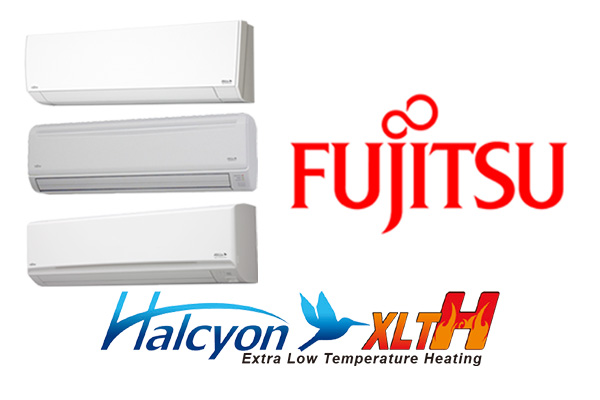 As with most machinery, the quality of the ductless system makes a difference.
As with most machinery, the quality of the ductless system makes a difference.
Less expensive models are normally made from cheap materials. So, although it may be tempting to purchase a low-priced unit, you might want to think about this ahead of making a purchase.
Of course, we’re not saying that all affordable HVAC units are not high-quality systems. However, if possible, try to consult with a reputable HVAC contractor to help you find better options that fit within your budget. By consulting with a reputable HVAC contractor, you can also get information about the quality of equipment, warranty, recommended brands, and other related topics.
4. Proper Ductless Heating & Cooling Installation
Your HVAC system’s performance and longevity will also depend on how well the HVAC installation company can do its job. After all, these people are the ones who will assemble your unit on site.
Expert installers should know how to find ideal spots for the indoor and outdoor units, check if there’s adequate clearance around these, and ensure proper fitting for the connecting pipes and cables.
5. Correct Ductless Mini-Split Sizing
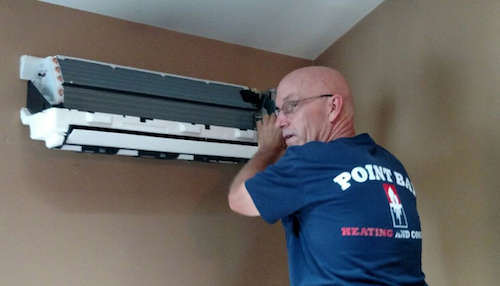
A smaller ductless system may cost less than a bigger one, but that doesn’t mean that it will help save money.
After all, the one rule you should always keep in mind when buying ductless HVAC systems is to find a size that is adequate for your home. This means that the unit must not be bigger or smaller than what you need to cool or heat your home.
Getting an undersized ductless unit will cause the system to work harder and longer just to reach the ideal indoor system. For this reason, components would be prone to wear and tear, significantly affecting the system’s lifespan. On the other hand, installing an oversized ductless mini-split system will result in short-cycling, which can also wear out a system’s components.
If you wish to find out what ductless system size you need, ask an experienced HVAC installer. They can calculate how much power you need for your home. After that, find a ductless system that can match the load you need.
6. Environmental Conditions
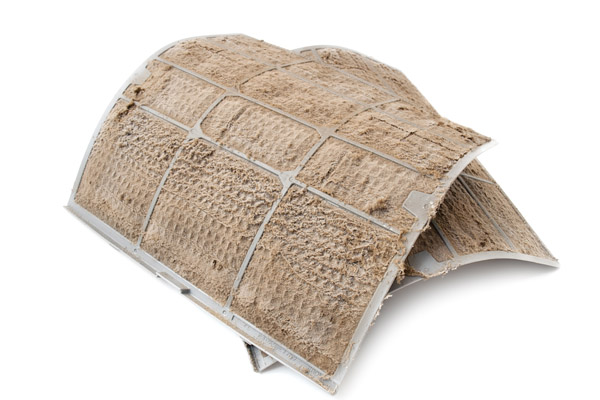
There are also certain environmental conditions that impact the longevity of a ductless HVAC unit.
If you live in coastal areas, you’ll have to deal with salty air that can make components corrode. Also, if you live in an area that is dry and dusty, you may find that the air filters get dirty quickly, meaning that you’ll have to replace or clean them more frequently to prolong the system’s lifespan.
HVAC Lifespan: Ductless HVAC Vs. Central HVAC Units
As mentioned above, ductless units tend to last longer than central ducted HVAC systems. This is mainly because of the difference in the design between the two, which impacts the system’s compressor.
The compressor is considered the heart of an HVAC system. Once it fails, that’s an indicator that the system will require a replacement. Below, we present some reasons why central HVAC units experience compressor failures:
1. High Static Pressure
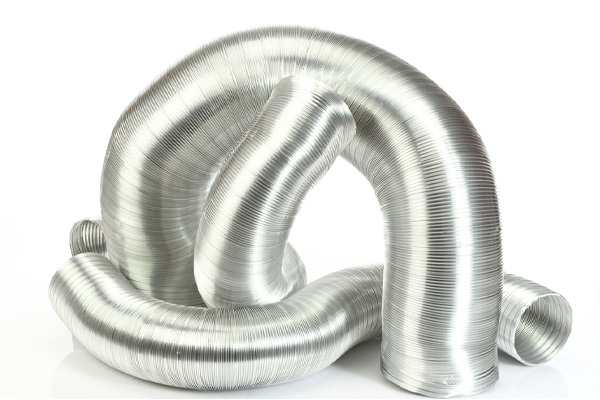
First, we have high static pressure, which is normally caused by incorrect duct sizing or installation.
Incorrect sizing of the ductwork can cause stress on the system, triggering the compressor to overheat. Though this may be a common problem with central systems, you won’t experience the same problem with ductless systems since they don’t implement the use of ducts.
2. Hard Starts
Repeated hard starts are one of the leading causes of why a central system experiences major wear and tear.
Fortunately, ductless mini-split systems use inverter technology that provides variable speeds. Instead of the compressor turning on at full speed all of the time, ductless technology offers a variable speed that allows it to ramp up and down.
3. Dirty Evaporator Coils
If ducts have leaks, dirt and dust can get stuck. These particles will then settle on the system’s surface, allowing the coil to get dirty and preventing the system from expelling enough heat. As a way to compensate, the compressor needs to work harder.
On the other hand, mini-split systems don’t use ductwork which means leaky ducts and dirt accumulation are not an issue.
Conclusion
Ductless mini-split systems do have a longer lifespan compared to traditional HVAC systems. Thanks to the lack of ducts and improved HVAC technology, these systems can operate more efficiently, which contributes to a longer lifespan.
A high-quality ductless HVAC system will last for two decades, especially if it is taken care of. This makes them an excellent investment for any homeowner. If you are interested in learning more about ductless systems, call an experienced HVAC contractor like Point Bay Fuel. You can always schedule a home visit to discuss more details about the system and get a free estimate.
Call Point Bay Fuel To Learn More About Ductless HVAC Systems

Point Bay Fuel offers superior heating and cooling services in Ocean and Monmouth County, New Jersey.
Our team of certified technicians can provide you with excellent HVAC services, including tune-ups, repairs, replacements, and more. Each technician has outstanding knowledge and experience to serve your HVAC system needs correctly.
Point Bay Fuel guarantees to provide the most competitive heating and cooling service costs in the area. Our maintenance services will improve your comfort, increase your system’s energy efficiency, and reduce your home’s heating and cooling costs.
Need your system repaired or replaced? We’ll recommend the best solution for your home while working within your budget. The best part is, all our work is backed with a guarantee to ensure your satisfaction. To schedule a service appointment, give us a call today! We also offer in-home estimates.
Contact us now by calling (732) 349-5059 to speak to one of our home comfort specialists!
